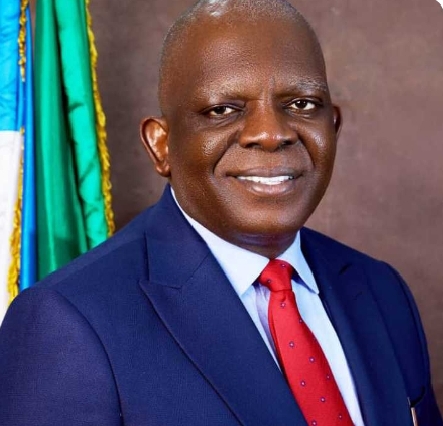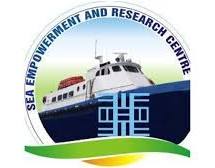Maritime
‘Port Economic Regulation Law Key To Efficient Operations’ NSC Boss

BY SANDRA CHUKWUNYENRE
The Executive Secretary of the Nigerian Shippers Council (NSC), Barr. Pius Akuta ,has called for an urgent passage of the Nigerian Shipping and Port Economic Regulatory Agency Bill 2023 ,which seek to repeal the Nigerian Shippers Council Act and establish a regulatory agency for the Nigerian ports.
Ukeyima ,who spoke on Wednesday November 20,2024 ,at the 2024 edition of the annual Seminar for Maritime Journalists held in Lagos ,insisted that the NSC as presently empowered lacks the required legal frame work to discharge its mandates as Ports services regulator effectively.
According to him, although the NSC ,was appointed the ports regulator in 2015, he however regretted that the agency is not sufficiently empowered to enforce compliance by the various ports operators .
“The Federal Government made the Nigerian Shippers Council the Nigerian Port economic regulator in 2015, but this status need to be formalized through legislation.
“Therefore, the need for a strong legal framework for the Council as the nation’s Port Economic Regulator is required. There is an urgent need for the passage of the Nigerian Shipping and Port Economic Regulatory Agency Bill 2023 which seeks to repeal the Nigerian Shippers Council Act and establish a regulatory agency for the Nigerian ports.”
The NSC Chief Executive Officer noted that the non appointment of Port economic regulator from 2006 when the Federal Government ceded control of various ports to the private sector to 2014 ,had left the ports without an effective regulator.
He identified above as one of the teething problems besetting port operations in the country.
“One of the biggest challenges for the NSC is compliance with its regulatory mandates. At the initial stage of implementing her regulatory functions, the Council encountered some sorts of resistance, particularly from providers of shipping and port services, likewise some Government agencies were not left out.
The various service providers namely-NPA ,Private Terminal Operators ,(Seaport and off -dock bonded terminals),Shipping Companies ,Freight Forwarders ,Truck haulers and Groupage operators all set their standard of service deliveries regardless of whether it meets the industry quality standard or not.

The task of making the service providers to comply with the standard rules has been become an issue which the NSC is still battling with up till now.” he noted.
According to the NCS boss ,the abilities of the regulatory agency to drive reforms and improve port operations have also been hampered by the broader infrastructural deficits within the port system.
Nigerian Ports, he maintained are currently plagued by poor infrastructural facilities, including outdated cargo handling equipment, inadequate road networks and insufficient storage facilities.
Barr Ukeyimo noted that while the NSC can regulate economic activities, it has limited control over the physical infrastructure, which is largely under the purview of other Government regulatory agencies, including NPA, Federal Ministry of Works, Nigeria Railways services and the private investors.
The NCS’s ability to drive reforms and improve port operations, he insisted is severely constrained by the broader infrastructural deficiencies within the port system.
The NSC Executive Secretary also listed lack of coordination among port operators, political interference and bureaucratic bottle necks occasioned by changes in Government, shifting of priorities, and high cost of business transactions, as well as port congestion and inefficiency as some of the challenges militating against the industry.
Other problems he said are limited private sector participation, technological limitations, security and corruption challenges, including cargo theft, piracy and general lawlessness.
But despite the obvious difficulties, the NCS CEO said there are promising prospects for agency, many of which stem from the ongoing transition in the maritime and logistics sectors.
“The port Economic Regulatory Agency Bill if passed, will empower the NSC to take on more significant regulatory role in Nigerian ports, overseeing tariffs, service standards and port efficiency.
This would enhance the governance of port operations, improve infrastructure development and ensure fair competition among stakeholders “he stated.





































